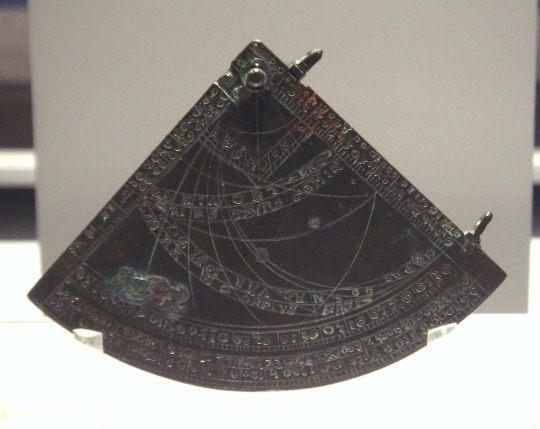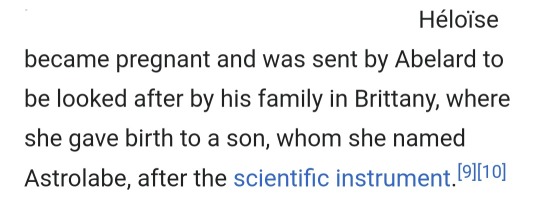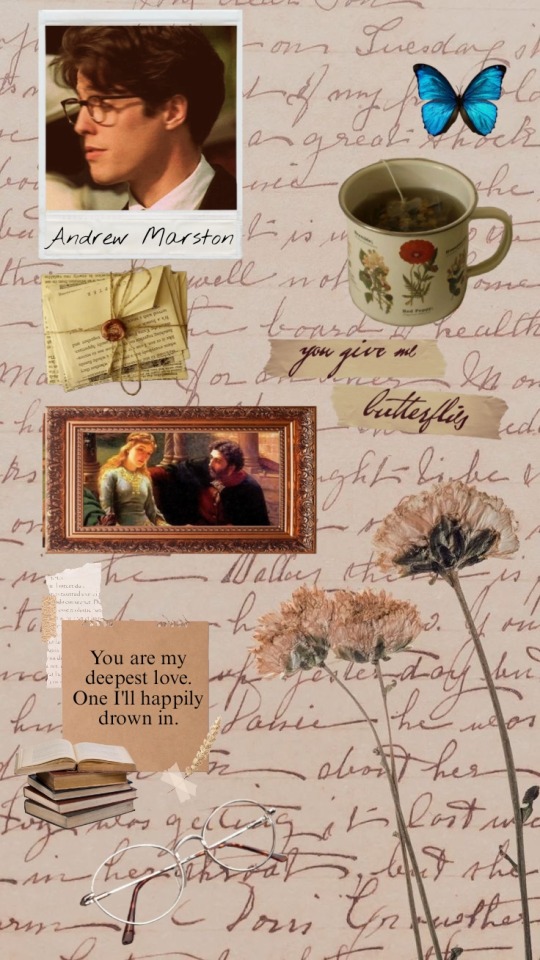#heloise and abelard
Explore tagged Tumblr posts
Text
Chopin's Abelard
I really enjoyed Karolina Żebrowska's latest podcast episode on Fryderyk Chopin's letters to Tytus Woyciechowski. There's a solid case that Chopin was queer (though – as she also says – this is severely underresearched because Poland is hardly the most progressive country), and this line in one of the letters she read really jumped out at me:
Najdroższe życie moje! Hipokryto obrzydły! Przemierzły, obmierzły Hrabio Ory! Abelardzie itd. My dearest life! Disgusting hipocryte! Detestable, loathsome Count Ory! Abelard etc.
Fryderyk Chopin to Tytus Woyciechowski, 18 August 1830 (my translation)
Aside from the obvious "my dearest life" and the exaggerated, playful slandering, Chopin also references two fictional characters.
Count Ory, the title characters in Rossini's Le Comte Ory comedy opera, is a rake who spends the entirety of the plot attempting to break into a castle and seduce Countess Adèle. One of his strategies involves crossdressing as a nun, and at the very end when Ory finally manages to enter Adèle's bedroom, he ends up accidentally wooing and kissing his male page, Isolier, who took her place to trick Ory (and then help him escape).
Abelard refers to one of the two main personages in the medieval story of Héloïse and Abelard, a true account of a tragic love affair that was a favourite of sentimental authors in the 18th century, including Pope and Rousseau, who wrote fictional adaptations based on the historical love letters. The story is particularly known for the lovers' secret marriage and then their tragic separation, after which they can only communicate their love and longing through letters – in other words, the perfect analogy for lovers who are separated by distance.
Interpret as you will, but the references to randy lovers, men kissing men (a common theme in Chopin's letters), sneaking into bedrooms, secret romances and parted lovers certainly stand out for me.
#queer history#19th century history#fryderyk chopin#frederic chopin#chopin#tytus woyciechowski#polish history#heloise and abelard
40 notes
·
View notes
Text
Going to be watching the "Fire of Idirsholes" so be prepared for many hateful and angry rants about Merlin, the dragon, and ugh why why why whyyyyyyy
Why do I always ship the most masochistic doom possibly kind of toxic pairing ever that will end up doomed in the end, like whhhhyyyy do I do this to myself.
Probably because the best love stories are related to doom? I mean I was on youtube watching this girl comment on medieval paintings, not sure how she got into my recommends and there are two paintings that reminded me of either Lancelot and Guinevere, and Merlin and Morgana.
Now I'll get into Lancelot and Guinevere later because tbh I don't care that much about them as I do when it comes to Merlin and Morgana.
See one of the paintings was a doomed forbidden romance between a teacher and a student, their names Abelard and Heloise, that ended up in tragedy because the Heloise's uncle found about their romance and hired someone to castrate her Abelard.
Granted there is a large age difference I believe between them (much like Merlin and Morgan in the legends) where he was 18 years older than her and I believe she was either 15 or 18 when he was tutoring her.
They wrote a love letters to each other that became a book because their correspondence was also intellectual and philosophical in nature. Heloise tried to assist Abelard in his scholarly works, and I believe much of his works was contributions by her.
They inspired the concept of courtly love for many authors including Christian de Troyes who was the first to describe Morgan as a lover of Merlin's though never gets too much into the details. I'm told this is to put down both Merlin and Morgan, Morgana as a loose maiden who gave her maidenhead to Merlin in order to learn the dark arts, and Merlin who was a lecherous fool who couldn't help himself. Yet despite the descriptions of controlling demons (I think), Morgan is still a good character in Christain de Troyes works and assists the heroes in his stories such as Yvaine and Eric when they are injured. She plays the healer role still until that role is fully diminished in Le Mort D'Artur.
Also Heloise joins a nunnery after what happens to Abelard, even before that she refuses marriage to Abelard and insists on being his mistress instead due to the fact that she believes marriage will diminish his philosophical thinking and that taking care of his wife and children will be his sole focus instead of his philosophical and scholarly works which had been his ambition all his life.
It reminds me of both Merlin and Nimue, and Merlin and Morgan. Merlin and Nimue due to Merlin's own passions and obsession with Nimue like Abelard has with Heloise, and Merlin and Morgan because of Morgan's devotion as a student and how out of all his students, she seemed to have not minded being his lover whereas Nimue and Vivian were more concerned with their "purity and honor".
Granted it's said that Morgan only gave herself to get knowledge from Merlin thus she was only using him, yet unlike Nimue and Vivian, there are works where she is said to have passionately loved Merlin and that reminds me of how Heloise loved Abelard.
Okay maybe I'm being a little ridiculous and projecting but lol I feel like writing a fic. I like tragic love affairs a lot especially if the relationship is so passionate and supporting...
Though in BBC Merlin, Mergana isn't really supporting. I mean there's some of that in S1 and possibly S2 when Merlin tries to help Morgana with hiding Mordred, and also when Morgana pays him back with assisting in helping fight bandits who are trying to ransack his village. Merlin also tries to help with getting help for Morgana about her magic without revealing his own magic, though by not revealing his own magic, he somewhat dooms their relationship. What is more you have Killgarrah telling him both he and Morgana are fated to be enemies.
"She is the darkness to your light. The hatred to your love"
You can't tell me this isn't a set-up for a doomed love affair can you?
Anyway, be prepared for angry rants for this episode I'm about to watch.
#BBC Merlin#BBC Merlin Season 2#Fires of Idirsholes#Merlin#anti Merlin#Kilgarrah#anti kilgarrah#Morgana#Morgana Pendragon#Morgana le Fay#Morgan le Fay#Heloise and Abelard#Heloise#Abelard#mergana#courtly love#tragic love affairs#Christain de Troyes
8 notes
·
View notes
Text

Lady Reading the Letters of Heloise and Abelard
Artist: Bernard d’Agesci (French, 1756–1829)
Date: circa 1780
Medium: Oil on Canvas
Collection: Art Institute of Chicago, Chicago, IL, United States
Description
This painting depicts a young woman lost in reverie after reading the letters of the ill-fated medieval lovers Heloise and Abelard. The objects on the table beside her—a letter, a sheet of music, and a book of erotic poetry—hint at a life of leisure and a susceptibility to love. In this early picture, Auguste Bernard drew upon history paintings by Peter Paul Rubens and Charles Le Brun, as well as Parisian traditions of genre painting and portraiture pioneered by Jean-Baptiste Greuze. Bernard worked in Paris in the early 1780s and studied in Italy for several years. Upon his return to Paris, he found his career frustrated by the French Revolution and the emergent fashion for the more austere Neoclassical style.
#painting#oil on canvas#lady#letters#heloise and abelard#sheet of music#book#table#woman#costume#reverie#reading#bernard d'agesci#french painter#european art#18th century painting#necklace
14 notes
·
View notes
Text

Héloïse d’Argenteuil in a letter to her former lover Pierre Abélard, nineteen years after their forced separation and entrance into religious life.
#abelard and heloise#medievalism#I reread these on the train yesterday and had to fight the urge to ugly cry#Heloise and abelard#Héloïse D’Argenteuil#Peter Abelard#Pierre Abelard#romance#forbidden love#love letters of abelard and heloise#love letter
47 notes
·
View notes
Text

did we all know this. i did not know this
#sorry to still be on this a day later but HELLO???????#she wrote WHAT#caro are you seeing this#heloise and Abelard#rare pic of me in the wild
9 notes
·
View notes
Text
A thing you need to know is that the famous lovers Heloise and Abelard - a pair of quite well-known Christian philosophers from earlyish medieval France who are also pretty well known for the fact that Heloise’s relatives later broke in to Abelard’s rooms and castrated him one evening - did in fact have one child together.
They called the poor kid Astrolabe.
*Astrolabe.*
I‘m generally quite a big fan of Heloise (I go back and forth on Abelard and quite often want to slap him) but she chose the name and that’s serious child cruelty.

That’s like modern parents calling a kid GPS 🤣
This is what a 12th century European astrolabe looks like btw. It’s a nautical navigation device which had been around since the classical period all over Asia, Europe and Africa.
They were such utter nerds calling their kid after that. (As an utter nerd, I do get the impulse 😄)
It does make Astrolabe *really* easy to track through the records *because no one fucking else is called fucking Astrolabe*.
(Astrolabe was raised by Abelard’s sister Denise because his parents were too busy being religious philosophers. I can’t help picturing her calling him Astro Boy (Garçon d’Astro?). His folks, particularly Abelard, did at least try to help him out in his career in the church when he was older, though given Abelard was basically a walking argument that pissed everyone around him off almost continuously that might actually have been more of a hindrance than a help…)
#heloise and abelard#medieval history#christian history#medieval philosophy#european history#astrolabe#nerds in love#nerds of history#womens history#history
42 notes
·
View notes
Text
Okurken seni düşünüyorum. Yalnızken sana dalıyor düşüncelerim. Dualarda bile aklım sende kalıyor. İşte halim böyle. Öyle abes ki, saklıyorum herkesten. Sen açığa çıkardın işte. Sebebi sen olduğuna göre, başka kime dökecektim içimi?
35 notes
·
View notes
Text

When your dad is a famous philosopher who was castrated by your great-uncle, and your mother was forced to join a convent before she gave birth to you, but the most interesting thing about you is still your goofy-ass robot name.
214 notes
·
View notes
Text





the borgias 1x03
41 notes
·
View notes
Text


Abelard and Heloise. The Letters and Other Writings (edited and translated by W. Levitan)
54 notes
·
View notes
Text


#titanicedit#titanic 1997#titanic#kate winslet#rose dewitt bukater#movie#love letters#abelard and heloise#middle ages
22 notes
·
View notes
Text
‘‘Okurken seni düşünüyorum. Yalnızca sana dalıyor düşüncelerim. Dualarda bile aklım sende kalıyor.’’
74 notes
·
View notes
Text

The Call to Arms!
Edmund Blair Leighton 1888
A young knight and his bride step out of the church just after their wedding ceremony. On the church steps, their parents watch with concern as a fully armored knight urgently informs the groom of an imminent war, calling him to join the battle.
#edmund blair leighton#call to arms#the call to arms#romantic art#Victorian art#medeival#medieval romanticism#chivalry#duty#historical#pre raphaelite#pre raphaelism#love#honor#knight#bride#19th century#storytelling#the accolade#Godspeed#god speed#stitching the standard#the wedding procession#abelard and heloise
7 notes
·
View notes
Text
nereye gideceksin seni yitirdiğimde ?
sappho - selected poems
#kitap#edebiyat#blogger#felsefe#kitaplar#kitap kurdu#blog#poems#şiir#charles bukowski#sylvia plath#birhan keskin#sapphic#sappho#selected poems#simone de beauvoir#love letters#marguerite duras#l'amant#hiroshima mon amour#ingeborg bachmann#nilgün marmara#lale müldür#buhurumeryem#abelard heloise#ophelia#hamlet#william shakespeare#othello#t.s. eliot
16 notes
·
View notes
Text

"You Are My Greatest Love. One I'll Happily Drown In."
💛💛💛💛💛💛💛💛💛💛💛💛💛💛💛💛💛💛
Just An Andrew Marston Aesthetic Board I made Last Night. For the Andrew girlies. You are the best.
This one is dedicated to the fans who loves Andrew. 🥐 💛✨✨✨
#zsakuva#sakuverse#andrew marston#andrew x listener#aesthetic#aesthetic board#quotes#abelard and heloise#dark academia#asmr#asmr roleplay#hugh grant#dark acadamia aesthetic#dark acamedia
30 notes
·
View notes
Text
This song always gives me: "Erik has just sang Christine to sleep on the first night in his home and fears what will happen once she awakens" vibes.
youtube
("Rage Against the Sun" from the musical "Abelard and Heloise")
32 notes
·
View notes